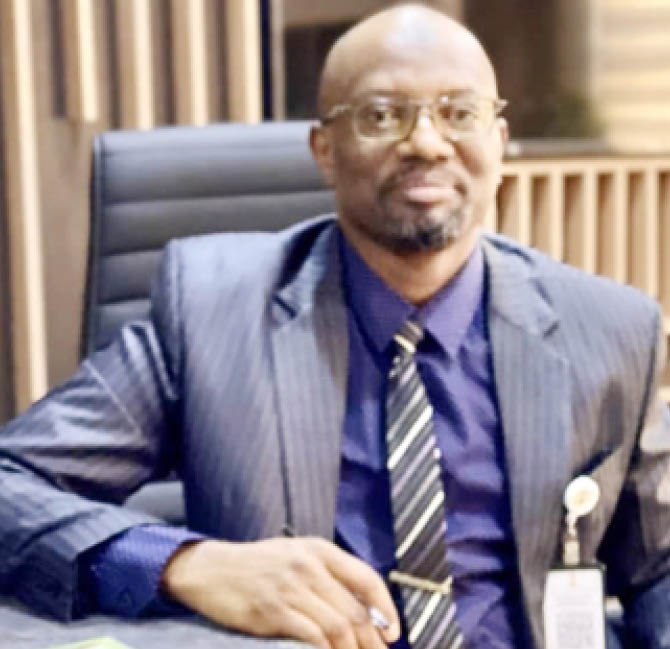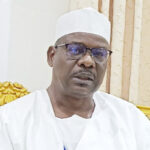Alhaji Mustapha Muhammed Sirajo is the Executive Chairman of the Katsina State Internal Revenue Service (KSIRS). A former staff of the Federal Inland Revenue Service (FIRS), Sirajo, in this interview, explains why he believes the state is on the right trajectory to financial autonomy, but that it is difficult to block revenue leakage.
What basically do you do at KSIRS?
The internal revenue service, like any other revenue agency, is that arm of government that is saddled with the responsibility of generating funds in the form of Internally Generated Revenue (IGR) that would aid the state opportunity to discharge its responsibilities to the citizenry. So our major task here is generating revenue, collecting revenue in the forms of taxes, levies, and what have you, for the state to run effectively and efficiently.
There are no many big commercial entities in your state, where do you generate revenue from?
We have different revenue heads, we have the motor licensing where we do number plates, we do vehicle registration, driver’s licence, motorcycle, tricycle and car and truck registration. We do that in collaboration with the Federal Road Safety Corps (FRSC) and the Vehicle Inspection Officers (VIOs). Then we have the Personal Income Tax, where we collect taxes from business ventures, from business profits. And then we also do collect taxes from Pay As You Earn (PAYE), that is for the employed members of the society. We also collect levies for business premises and business registration. There are quite a lot of levies that government collects, so we are saddled with the responsibility of ensuring that the amounts are paid as at when due to the government.
Do you see or foresee the state becoming financially autonomous in the near future?
Yes, I see that happening in the near future, because Katsina State, under the able leadership of His Excellency, Hon Aminu Bello Masari, has great potentials. One good thing is that in Katsina, we have about four international borders. Now, when properly harnessed, this will boost international trade between us and other African countries. What that means is that it will boost our production here. We’re able to export, we get foreign exchange, which is a good source of revenue, especially nowadays when the currency is greatly devalued. For example, just take watermelon to Niger Republic and come back with their currency, CFA, by the time you convert it, you’ll see it is big money. So it’s not even about the goods you sell, but the exchange rate again is another factor. We have quite a lot. I think 33 out of the 34 LGAs we have in Katsina have deposits of solid minerals, which is quite something that is really economical; that will bring in economic value to the state.
For instance, Kankara has kaolin, we have glass sand in Funtua; we have gold deposits stretching close to four or five local governments; we have quite a lot that when harnessed these things will obviously give us revenues.
This rail line that is coming from Kano, Daura through Jibia to Niger is another major source of revenue earning if properly harnessed. So we are looking at how we will tap into that. Then you will realise the way Katsina has changed. Some years back, you didn’t see commercial activities as you see now. What you saw then only in Kano and some other places are here now. So we have people that are business-oriented, what we need to do is to encourage them, to groom them, to see that they grow their businesses, and the more the income comes, the more revenue, because revenue is a function of income. So I think we have the capacity.
What effort are you making to block revenue leakage?
We have started. It is something that is very difficult because the thing is, no matter how much you want to achieve, if you don’t have the buy-in of your foot soldiers, then it is difficult, because it’s just like plumbing work. You know, when you connect pipes from the source, you want to take it to a point, the plumber could easily at a point, just fix a “T”, so he will create his own there and then give you your other point. And it is difficult to track that point because when you go to the source where the water is coming from, but when you come to your side, there’s no pressure because you are sharing. So this is exactly how it is here. But by the special grace of God, through the psychological work we’ve been doing with them, they’ve been able to appreciate that.
We’ve also stopped cash transactions, because that is a major source of revenue leakage. So, what we do now is, tell taxpayers, go to the bank, we have various accounts in different banks, pay, get your e-ticket and present to us. We started it in late November or early December, 2021, and we hope to really continue with it and see that it cuts across the whole state, because the Katsina State Codification and Consolidation Act has been passed and the governor signed it into law. The internal revenue is now autonomous and also all revenues have been consolidated. We collect all revenues, IGR on behalf of the state government. We are working with all MDAs and other revenue sources to ensure that those leakages are blocked all through. It’s very herculean, but by the grace of God we are making progress.
Are you doing it all alone or have you engaged the services of consultants?
We have consultants, because you know, consultants are one aspect of revenue collection that you cannot do without. Taxpayers naturally can be difficult; they engage the services of professionals to modify and to manoeuvre. We have sophisticated taxpayers, we have banks, we have service providers, and in a revenue agency, it is difficult to really specialise to that extent. So, we need the services of people that have the experience to do one or two things for us.
I met a fully manual system, everything about us apart from number plate, which FRSC is partnering with us on, and some areas of motor licensing, every other thing here is manually done. So we have started the process of automating all our processes so that we would be able to rub shoulders with any modernised revenue authority in the country, and even beyond.
What are the challenges of KSIRS?
Generally, the challenge we’re facing majorly now is getting the tax-paying public to realise that tax payment is a civic responsibility that needs to be done with little coercion from the government. The thing is that, from day one, when tax was brought, the definition itself said it’s a compulsory levy. And anything that is compulsory means you have no option but to comply, but we have a problem, especially up here in the North. We don’t have the tax-paying culture up here. We used to have it before, because in the olden days we know we had the development levies and cattle tax, which were religiously done. So, trying to get people to understand why they need to pay taxes is one of the key things. But with the massive enlightenment, things are beginning to turn around, but it is not an easy task.
Development levies and cattle tax have been reintroduced recently, what informed this?
They have been reintroduced, but right now we are on the administrative issues, because you know, it’s a really difficult area, even though the cattle tax and the developmental levy were actually requested by the people for them to be reintroduced during the 2021 budget preparation. They went round local governments engaging stakeholders. So, that was when people said if we were so tied down on revenue generation, why don’t we reintroduce cattle tax? And after all, if we reintroduce those things, they will probably help in resolving some of these security challenges.

 Join Daily Trust WhatsApp Community For Quick Access To News and Happenings Around You.
Join Daily Trust WhatsApp Community For Quick Access To News and Happenings Around You.


